
A
n evening in Hamburg in May 2022: Seven people from transport and logistics stand at the cooker of the cooking school “La Cocina” and together create three courses of a sophisticated menu - beef carpaccio with parmesan and rocket, pork neck with gnocchi and stracciatella cake with ice cream. Numerous ingredients are cut, grated, chopped, stirred - and the discussion continues. Beforehand, the experts have already sat together all day and talked about the current challenges of the industry: Krone specifically networks them with each other on the Denkfabrik platform to jointly develop new ideas for the future of transport and logistics. “Each and every one brings expertise and experience from their own field, and it is precisely this diversity of ingredients that makes for success,” explains Simon Richenhagen, Marketing Manager of the Krone Commercial Vehicle Group.
Taking the industry forward
The members of the think tank have diverse backgrounds, specialising in combined transport, electromobility, research, media, digitalisation or start-ups. What they all have in common is a passion for the industry and a desire to keep pushing it forward - they are true thought leaders. They not only have different knowledge, but also individual experiences, perspectives and opinions in their luggage and thus spice up the exchange, bring forth new approaches or inspire each other to do so. The idea behind the Denkfabrik format is above all to meet regularly, away from day-to-day business and to encourage open discussion. Just as very tasty dishes are created in this Hamburg kitchen on this evening, because it is precisely these people who stand together at the cooker and bring together diverse ingredients. And just as beef carpaccio, for example, requires good meat, precision in cutting, aromatic olive oil and a little sea salt to develop its full flavour, the industry is also dependent on smart minds and their approaches in order to constantly develop further.
WOLFGANG THOMA
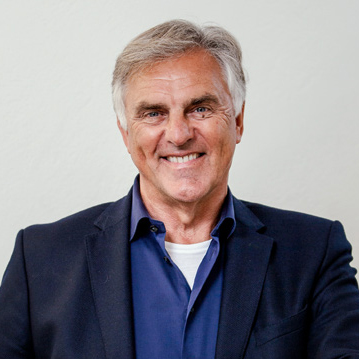
Wolfgang Thoma is managing partner of Spedition Ansorge GmbH & Co. KG and a trained lawyer. As an entrepreneur, Thoma is a pioneer in the field of electric mobility: together with partners, he developed the purely electric tractor “Elias”.
All the experts at the think tank agreed at this meeting: transport and logistics are currently facing many particular and complex hurdles. From climate protection, a shortage of skilled workers, pandemics, mobile working and global supply chains that can hardly be planned any more, to rising raw material prices and energy costs, to the lack of guard rails for alternative drives. From the reorganisation of infrastructures and digital transformation to new global players who want to exercise great market power against the threat of cybercrime. And in some cases, they are also very personal, human issues: “Employees in the companies sometimes live in constant worry and fear - about health, financial security or global stability,” says Axel Plaß, managing principal partner of the Zippel Group. For the entrepreneurs in the industry, this means: they have to combine all their strengths to meet all the demands placed on them.
“Management of the shortage”
Professor Christian Kille from the Institute of Applied Logistics at the University of Applied Sciences Würzburg-Schweinfurt cites “management of the shortage” as one of the most important tasks at present. Among other things, he says, there is a shortage of raw materials, containers - and above all of skilled workers, not just drivers, but people in all departments of a transport or logistics company. To combat the shortage of skilled workers, he recommends, among other things, more targeted communication about the industry, its services and potential, because: “The more people learn about logistics and really get to know and understand it in depth, the higher they experience its relevance. That’s why it’s important to reach young people in particular with this information - because they can be the skilled workers of tomorrow.”
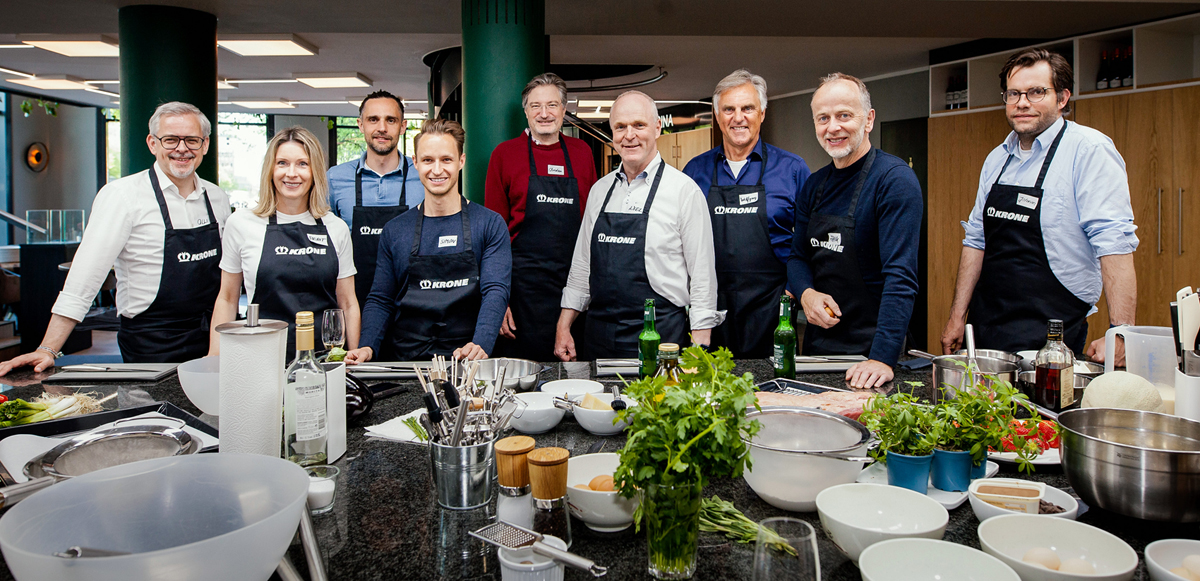
Kille gave another impulse to the round that can promote environmental protection: “If the areas available for logistics alone were equipped with photovoltaic systems as extensively as possible, this would have very positive effects. You could completely roof - over car parks, for example.” His thesis: “Logistics can even become climate positive! We can work on not only ensuring security of supply for society, but also helping to become energy self-sufficient.” That is a lofty goal, he admits. But he motivates thinking through such ideas - because they make new ways and actions possible.
Listening carefully to customers
Every entrepreneur probably has a very individual recipe for success to lead his own company through crises as well as through calmer times. “We always listen very carefully to our customers about what they want,” says for example, Wolfgang Thoma, managing partner of Ansorge Logistik. For some time now, one of the most pressing wishes from their side has been the reduction of CO2 emissions during transport. Ansorge is continuously converting its fleet to e-mobility, is working on hydrogen and e-fuels, and on shifting traffic to rail. “Digitalisation is also helpful. Among other things, it offers very good approaches for warehouse logistics, which provides the material for the supply chain. Today, we already have very powerful systems that can meet all the corresponding customer needs.”
ANTHONY WANDT
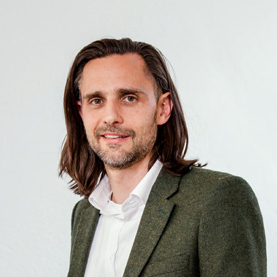
Anthony Wandt has been managing partner of Wandt Spedition Transportberatung GmbH since 2016 - which offers contract, warehouse and personnel logistics as well as cargo, system and general cargo transport, among other services. He took over the company, together with his sister Aline and is driving its digital transformation.
For the experienced entrepreneur, above all, foresight is an important formula for success - today more so than ever: “If we look at the current global political situation, a lack of planning certainty is one of the greatest constants, and it challenges us very strongly. Not only with Russia’s invasion of Ukraine has it assumed almost infinite proportions. We don’t know what tomorrow will bring. We are driving in thick fog and the engine power is still excellent, but no one can predict when there might be a collision. Nevertheless, as entrepreneurs, we have to prepare ourselves and react quickly in case of an emergency.”
Politics must set the course
However, major political upheavals cannot be absorbed by individual entrepreneurial decisions. “In logistics, for example, we can handle inventory increases in the short term,” says Thoma. “But everything else can only be influenced by the government. It has to create the conditions under which we can all work well and fulfil our tasks for the economy and society.” According to Thoma, another important ingredient for longterm success is innovative strength: “At Ansorge, as a medium-sized company, we built the first fully automated high-bay warehouses in the mid-1990s. With this, we already initiated automation at that time.” Innovation always requires a willingness to change: “Anyone in the transport business who has always wanted only to drive from A to B certainly has a problem today.”
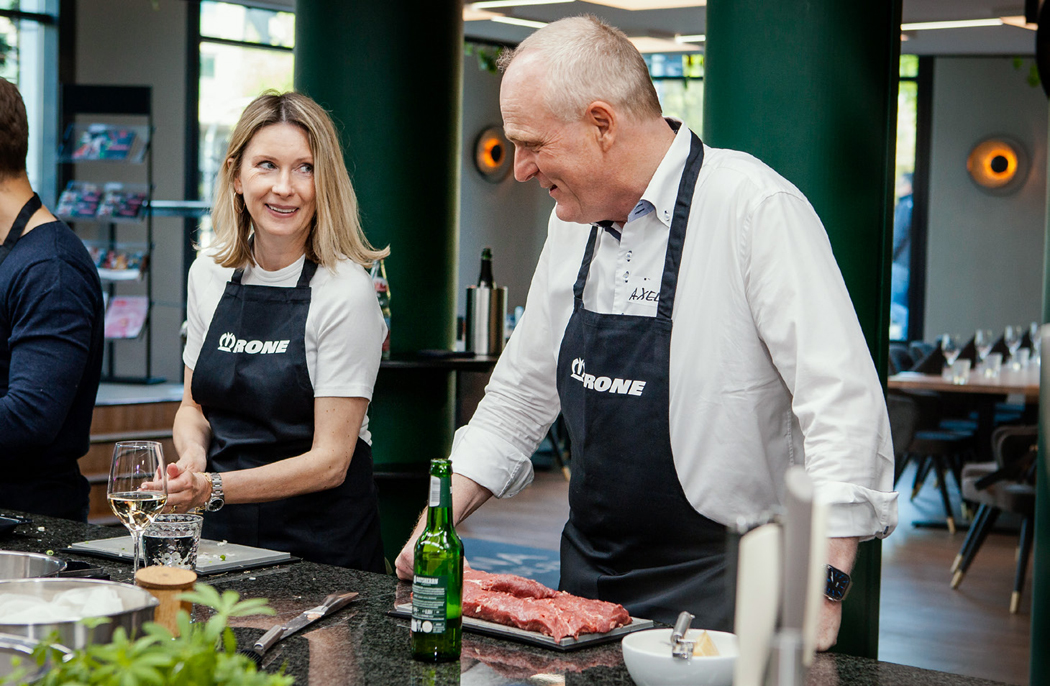
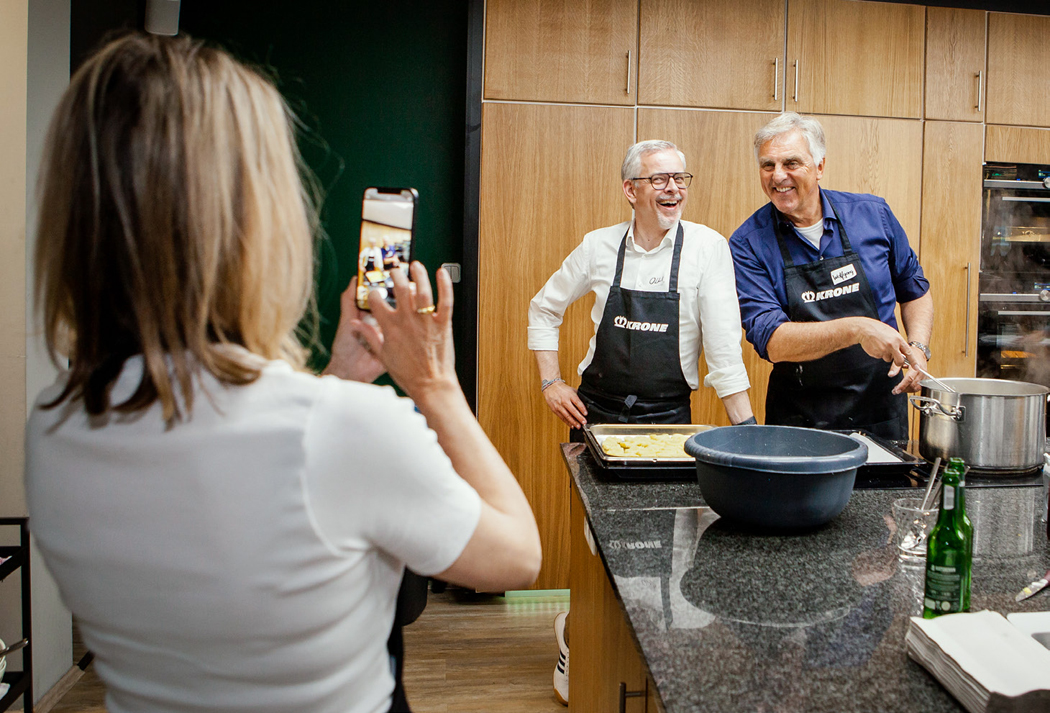
Besides the work at the cooker, there was enough time for further conversations and humorous moments.
Krone has always stood for consistency and innovative strength at the same time. The brand supports its customers in carrying out transport as efficiently, safely and economically as possible. “Our recipe for success is uncompromising quality coupled with great openness to new developments,” says Simon Richenhagen. Throughout its decades-long history, the company has always been closely at its customers’ side, developing products and services that are practical, robust and at the same time cost-efficient. “We are a strong partner - and network with other players who demonstrate excellence in their subject areas to provide the best solutions for our customers.” Thus, he says, the think tank is also an example of how Krone networks with experts, exchanges ideas with them and also opens up for them.
Increasing the efficiency of transport
Many other approaches underline this ideology: for example, the company cooperates with startups and has developed an electrically driven mega-trailer with Trailer Dynamics (see article ‘The engine moves into the trailer’). With Liebherr, Krone has launched the Celsineo brand: a modular refrigeration unit for trailers that has already been successfully launched on the market and is revolutionising the industry. The cooperation with Liebherr is currently being further advanced by connecting the system to an electrically driven axle (see article ‘On the way to the electric refrigerated trailer’). Furthermore, Fahrzeugwerk Krone is developing an innovative chassis in-house (see article ‘We need to take advantage of everything that technology can provide’) The fully automatic multifunctional Box Liner TU 50 Traction Automatic saves a lot of time when picking up containers and can thus at least somewhat shorten the traffic jams in the ports. “Wherever possible, we use digitalisation and automation to relieve drivers and increase the efficiency of transport,” affirms Richenhagen.
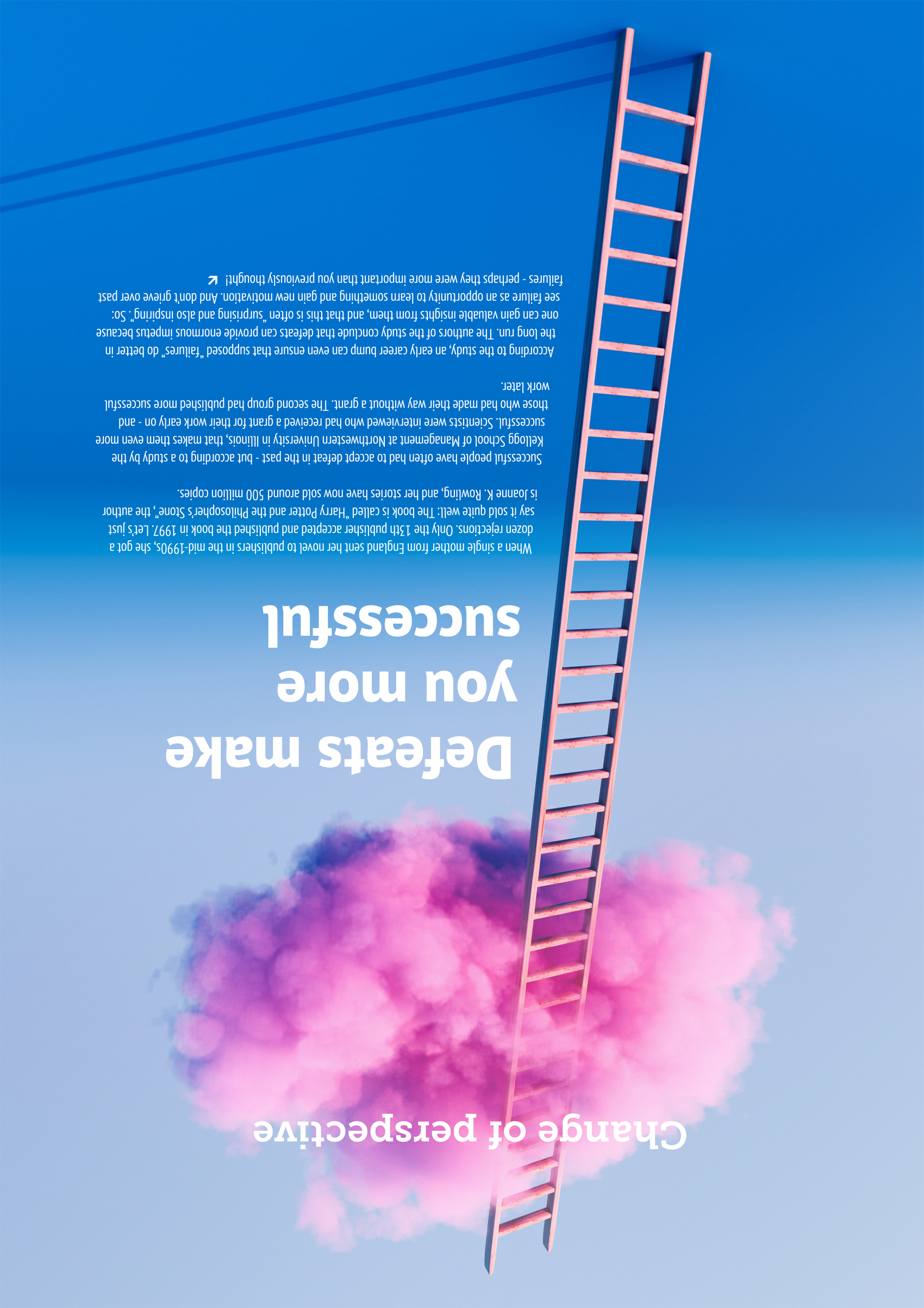
Anthony Wandt, managing partner of Wandt Spedition Transportberatung GmbH and member of Krone’s Denkfabrik, also relies on networking to further expand his company’s success: “The transport of the future will certainly be even more characterised by cooperation than it is today. Transport modes will be increasingly networked, just like information.” At the same time, he says, not only ecological sustainability should grow, but also social and economic sustainability. Wandt believes it is almost certain that the supply chain will not only be disrupted in the short term - he expects lasting unrest. This makes it all the more important, he says, for entrepreneurs to move forward with the right attitude: “The tasks we face are so diverse and challenging that above all it is important to keep a cool head and decide prudently which issues to enter into and how to reconcile them.”
SIMON RICHENHAGEN
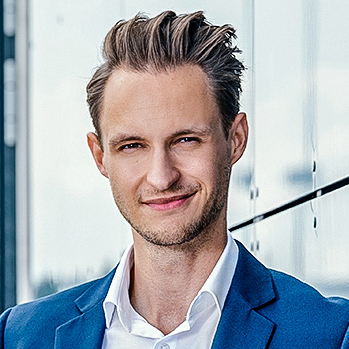
Simon Richenhagen has been responsible for marketing at the Krone Commercial Vehicle Group since 2021. During his Master’s degree in Business Administration, the trained automotive salesman worked at an advertising marketing agency in sales and business development, and in 2016 he joined Krone as Marketing Manager. In 2018, he switched to the company’s brand management and dedicated himself to brand positioning in the digital environment.
Avoiding transports instead of relocating them
In its corporate culture, Wandt Spedition relies on a cooperative atmosphere in which the doors are always open for all employees. “Especially in view of the growing pressure on both companies and each individual, we cultivate a family-like approach to our employees all the more. We are aware that it is their lifetime that they invest in their job. We feel responsible for them and support them in their individual needs and desires.” The importance of the industry, and thus the work of all those involved in transport and logistics, is something that his team and he constantly make clear to everyone in the company: “We try to tell every employee how important the tasks are that they do.”
For logistics of the future, Wandt believes it is essential to think less about hauling loads and more about how transport can be avoided: “By consuming less, by bundling transports or relaxing time windows - there are many possibilities.” Sometimes a dish tastes even better if you don’t overload it, but deliberately leave out two or three ingredients.
For logistics of the future, Wandt believes it is essential to think less about hauling loads and more about how transport can be avoided: “By consuming less, by bundling transports or relaxing time windows - there are many possibilities.” Sometimes a dish tastes even better if you don’t overload it, but deliberately leave out two or three ingredients.
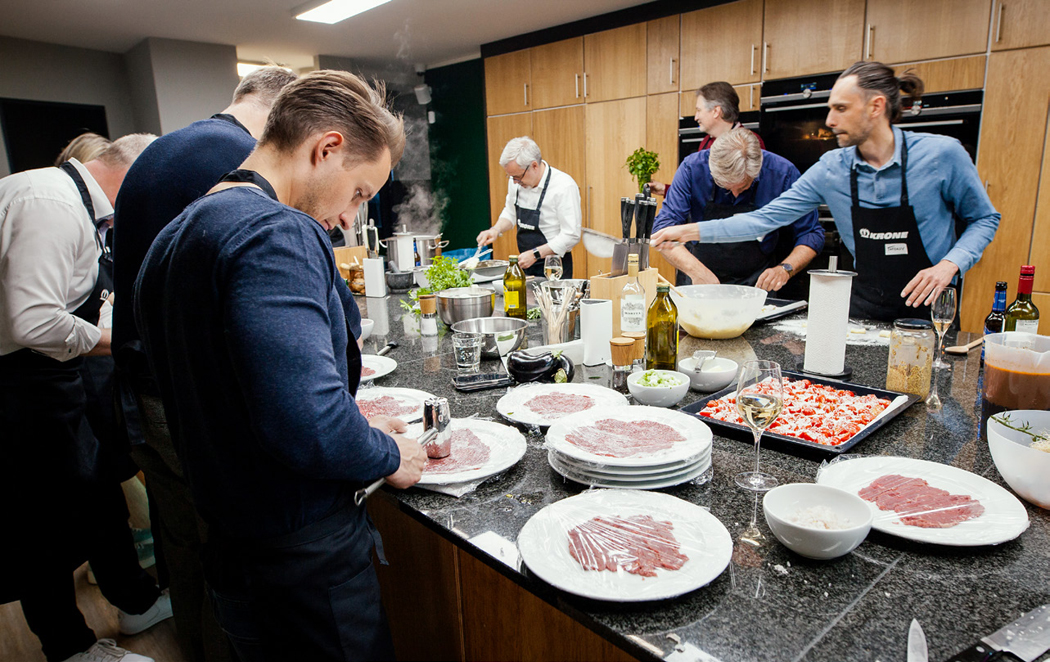
Cooking requires good ingredients - and skilled hands to process them. The members of the think tank Denkfabrik were also a perfect team at the cooker.
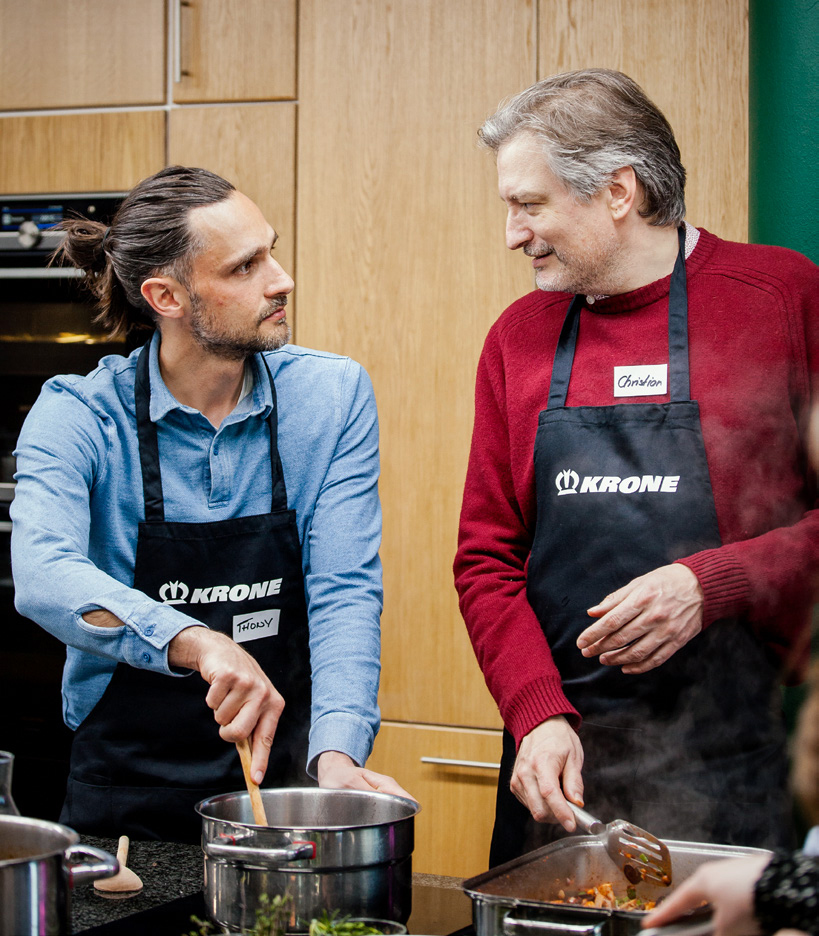
Photos: Stefan Bungert, Krone




